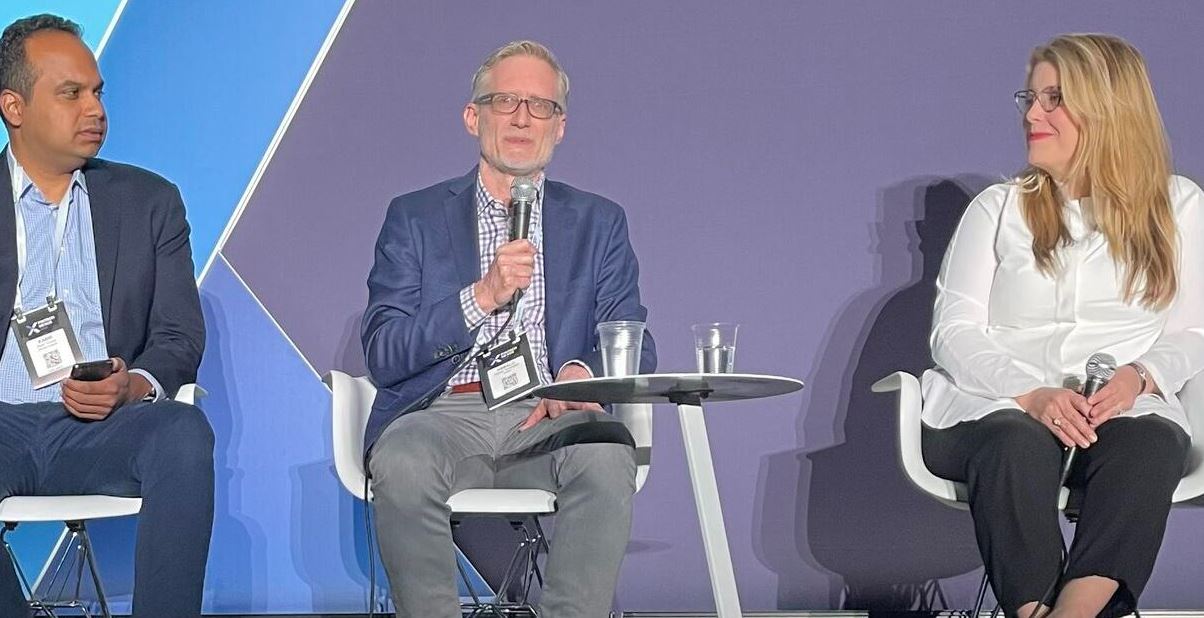Equifax Leads Discussion on Financial Inclusion at Fintech Nexus Conference
EQUIFAX WAS PROUD TO LEAD THE DISCUSSION ON FINANCIAL INCLUSION at the May 2023 FinTech Nexus USA conference in New York.
The annual conference brings together thousands of banks, fintechs and investors to talk about and help shape the future of financial services and how to create a more-inclusive financial system for consumers.
Innovations with alternative data and advanced analytics that are being developed for and in partnership with fintech companies will help lenders remain committed to the pursuit of financial inclusion during periods of tighter credit. Fintech companies have experienced explosive growth by making financial services simpler, faster and more accessible. But uncertain economic conditions and financial system disruptions are forcing some lenders to pull back and tighten credit policies. The industry is continuously working to find the balance between inclusive and responsible lending practices that serve all stakeholders.
Equifax addresses this issue in a FinTech Nexus USA panel: Data Science Innovations for more inclusion and responsible financial services.
Equifax Chief Data & Analytics Officer, Harald Schneider, was joined by notable fintech influencers, including: Sudheer Chava, Alton M. Costley Chair at Scheller College of Business, Georgia Tech; Nat Hoopes, Head of Policy at Upstart; Laura Kornhauser, CEO and Co-Founder of Stratyfy; and Kabir Kumar, Partner and Co-Founder at Flourish Ventures.
Kumar kicked off the panel with a simple but topical question: How is access to credit changing in this current economic climate?
Schneider said while there is robust growth in terms of consumer lending, there has been some pull-back from lenders.
“We’ve seen a little bit more of a pull-back by some of the traditional fintech lenders and to an extent, we’ve seen traditional lenders stepping in and closing some of the gap,” Schneider said.
Kumar asked Schneider how Equifax is going beyond the traditional credit files to find new data sources for consumers.
Schneider said data is at the core of business at Equifax, and the company is continuously looking to expand the data sources to impact more consumers.
“It allows us to create more of a 360 view and add additional trade lines that allows us to create thicker files and a better opportunity for lenders for risk assessment,” Schneider said.
Schneider also referenced a new product that Equifax launched, the OneScore consumer credit model, which uses alternative data to help more individuals access credit.
“If you look at the people applying for lending product on a monthly basis, just using the utility data and some of the additional credit data that we’ve been enriching our credit trends with, we’re now able to improve an extra 20 percent of consumers that are looking for lending product without increasing risk,” Schneider said.
At the end of the panel, a question from the audience was asked of Schneider if there was a case for a bureau to open up their scoring models.
“Yes, we will continue providing more transparency helping not just our customers but consumers understand better why the model provides scores,” Schneider said. “We’re certainly looking to continue being more and more transparent in that space because it’s critical.”
Equifax delivers insights that power financial opportunity. To learn more about our commitment to Financial Inclusion, click here.
